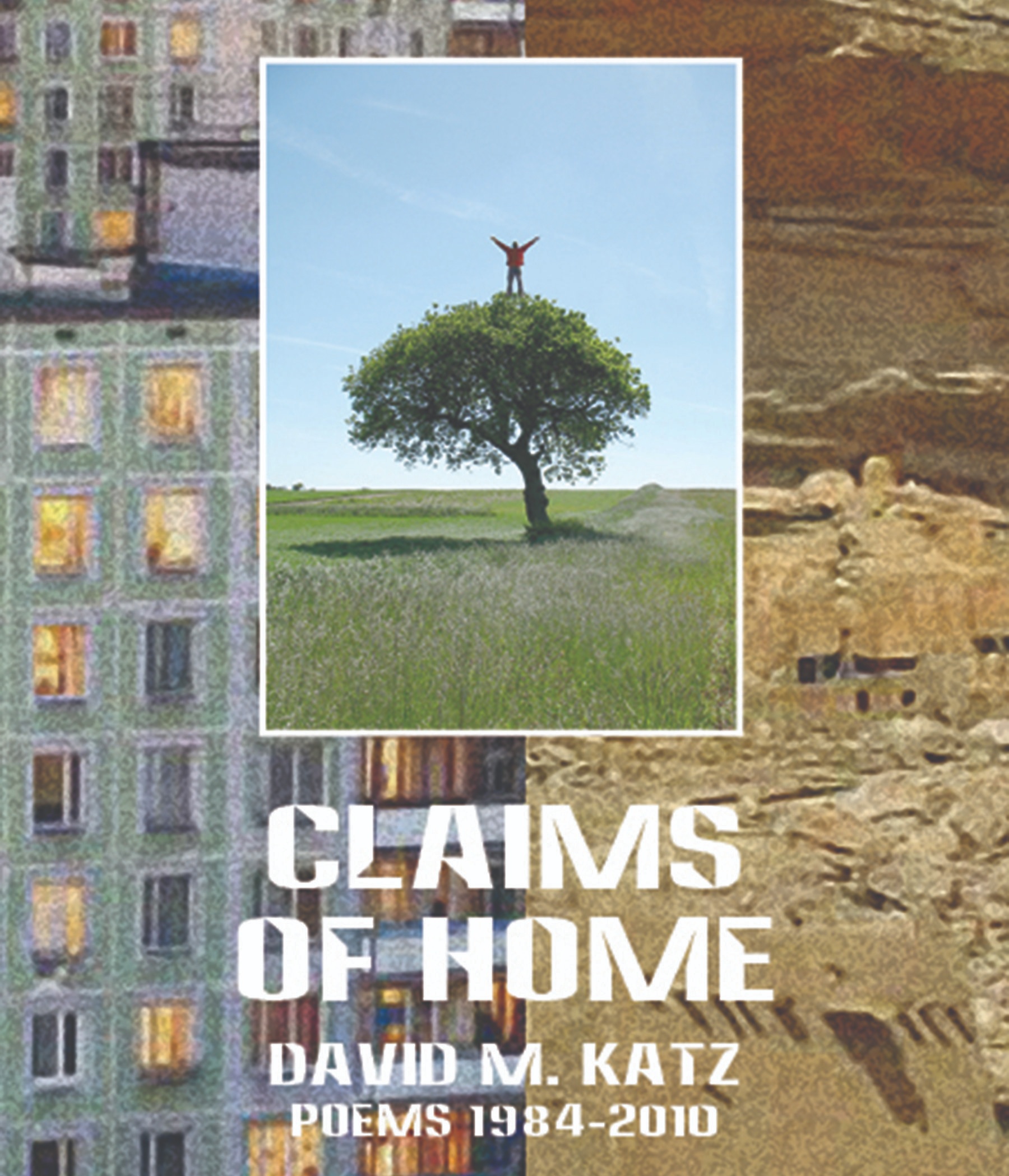Alba
Writing in the morning, just after the birds
Commingle with the crickets, when all sounds subside
A second until they will again persist,
I sense a dangerous presence in the words
This summer house might utter. It might deride
Our sin against stillness, make us desist
From movement altogether, demand paralysis
For admittance to its kingdom’s quiet wood.
It might strike from its rooms, forbidding us speech,
All of its voices with a single emphasis,
A constant request for what it knows is good
And what is forever beyond our reach.
Published by Dos Madres Press, 2011
Copies are $18 each. To order copies signed and inscribed by the author, email davidmkatz59@gmail.com
REVIEWS
Reviewed by Oran Ryan, The Raintown Review, Volume 10, Issue 2, February 2012, pages 118-123.
PRAISE
The “claims of home” in this new, long-awaited collection by David Katz, the first in almost thirty years, are first and foremost, whatever else they may be, the claims of poetry. Here one can find sonnets, odes, villanelles, and all manner of other verse forms, rhymed, blank, and free. (“Here words can be arranged / In preparation for the great moral dance.”) And here the range of reference can encompass Dante, Pope, Collins, the Golden Age Hebrew poets, and the concept of zero. Closer to the poet’s immediate home, a meditation on his children’s imagination as they play at being gods and monsters in the bath can spontaneously take shape before our eyes as an Ovidian metamorphosis: “Then, like jagged streaks of light / That break off after a dive, as the diver comes / Cooly upon a darkness utterly dense, / Consolations disperse. Through my fingers / The gods and monsters rise into the night.” Consoling and admonishing by turns, these poems establish their claims on us. —Henry Weinfield
“The mind,” David M. Katz notes, “has a talent for distortion,” and in Claims of Home Katz observes that talent at work in others: Borges and James Dean, Moses Ibn Ezra and Marianne Moore, among many other fabulists. But Katz also shows the talent he himself possesses for that distortion — that telling-it-slant — we call poetry, and need because, as Katz himself puts it in a poem addressed to Solomon Ibn Gabirol, “To makes verses, Shlomo, / Is to believe in the one God, to see the source / Rippling toward us in a number.” —H.L. Hix
Here is a quarter century of work from a poet who has patiently teased out the sounds of sense from American speech—overheard on a father-and-son tour of prospective colleges or at a “scrub-urban birthday barbecue.” To read David Katz’s shapely, sonically savvy, poems is to enter with the poet into an ongoing dialogue between contemporary talk and our modern literary past (as Bishop, Crane, Borges, Rushdie, Moore, O’Hara, Stevens, Auden, and Lowell traverse the stage of his poetry in turn), as well as with ancient Jewish culture (as enunciated by Gabirol, Halevi, and the Bible). Katz’s Claims of Home bestrides the new world and the old, claiming finally an enduring home in the heart. —David Yezzi
Thirty years ago in The Warrior in the Forest, David Katz spoke in the voice of a postmodern knight errant, brilliantly renewing the tradition of the quest-romance. Now, at long last, he is back, and like his “Prospero in August,” he has transformed himself into a wizard, dazzling us with his spells even as he casts them into doubt. Turning from the quest (and with formal grace, these poems turn and turn again), he now acknowledges the Claims of Home. The poems, like those who might land on Prospero’s isle, “come as figures / In a dream, who, motiveless in themselves, / See their actions swim across an unfurled map, / Moved by unseen intentions.” Reader, give yourself over to this magic. —Norman Finkelstein
Characters, voices, journeys—these are among the varied subjects of David M. Katz’s beautiful poems. I am struck by their intelligence and passion, their formal containments of uncontainable desire. “All we do aspires to what’s not there,” he writes in “The Concept of Zero,” one of several fine villanelles in the book. Invoking a wide range of poets such as Borges, Auden, Moore, O’Hara, Stevens and Shakespeare, the poems wear their learning lightly, always aware of “the discordant force / That yet holds the globe together.” With its high polish, elegance and deep feeling, Claims of Home is a book to keep. —David Mason
